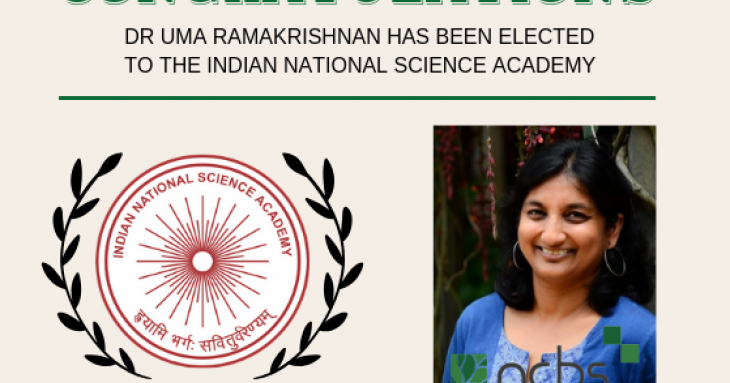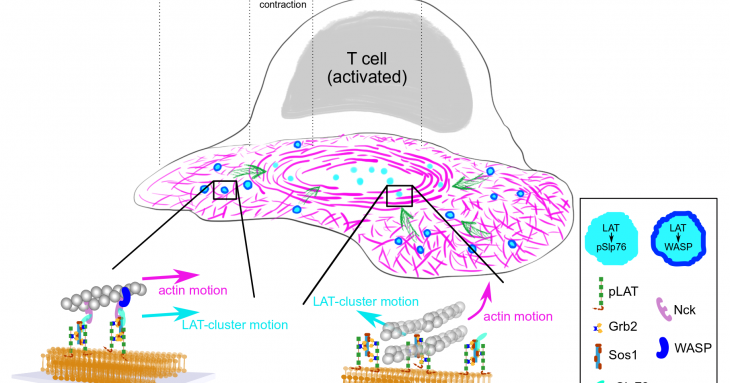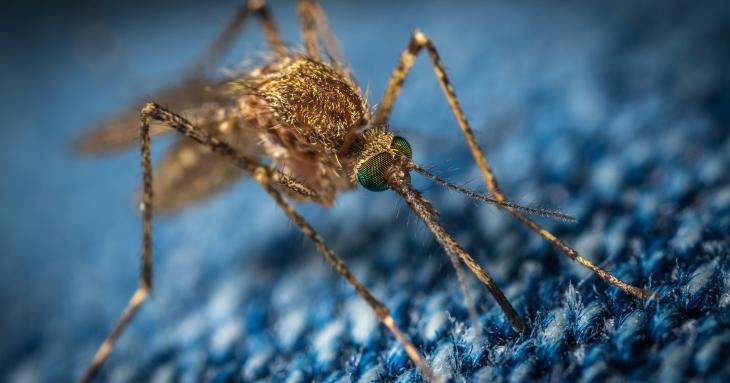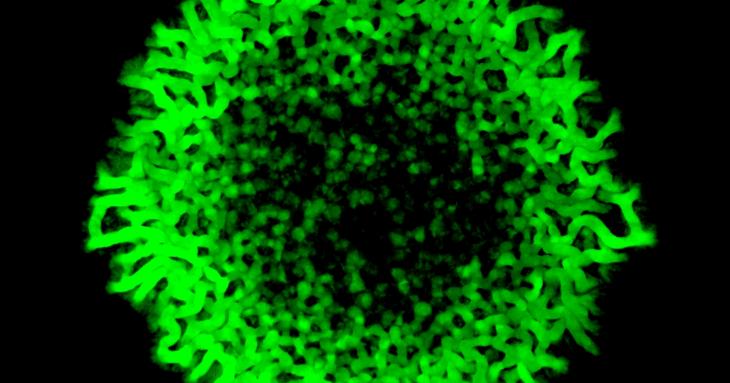-
Modified transfer RNAs—cellular DJs for tuning metabolites
Every living cell is no less than a party, with a team of highly trained Disc jockeys (DJs). When major events such as cell division or nutrient droughts happen, these molecular DJs create just the right mix of metabolites and proteins to ensure a seamless transition from one state to another. So, who are these cellular DJs, and how do they do this?
-
Congratulations! Dr Uma Ramakrishnan elected fellow of INSA
Dr. Uma Ramakrishnan, a population geneticist at the National Centre for Biological Sciences (NCBS), was recently elected to the Indian National Science Academy (INSA). This is a proud moment for NCBS, and we were eager to know what it means for Dr. Ramakrishnan.
-
Not just numbers, DNA holds the key in tiger conservation
In a recent study, researchers at NCBS led by Prof Ramakrishnan, in collaboration with those from Stanford University, USA, have proposed a cost-effective alternative for analysing DNA samples. “It takes advantage of newer sequencing technologies that can be used to process hundreds of samples in parallel,” says Dr Meghana Natesh, a researcher at NCBS.
-
A new ‘clutch’ to engage the immune cell ‘gear’
A unique summer institute held at the Woods Hole Marine Biological Laboratory in the U.S. (during 2013-2018) helped unlock a few mysteries of the immune system. A team of leading biologists and biochemists identified a molecular ‘clutch’ which helps move clusters of proteins inside the immune cells.
-
How micro RNAs regulate the colour of fruits, leaves
A team from the National Centre for Biological Sciences (NCBS), Bengaluru, has found that the rich colour in fruits and leaves of plants are indirectly controlled by specific micro RNAs — miR828 and miR858.
-
Molecular ‘clutch’ puts infection-fighting cells into gear
- International team including University of Warwick scientists identifies proteins that drive activation of our immune response
-
Insect Flight Muscles: as they really are
Mythology across civilisations is a testament to our fascination with flight. Though very different from the flight of birds, insects show remarkably variable and versatile movement in the air. As subset of muscles in insect thoraces called Indirect Flight Muscles act as the engine that powers the beating of wings. To understand how they work, researchers have investigated molecular details of their function, without adequately being to visualise the overall structure.
-
Collaboration is key to the biomedical ecosystem
June 2019: The Indo-African Dengue Vaccine Development
-
Study reveals metabolic constraints that control how groups of cells specialise and become interdependent
The question of how life arose on earth has always intrigued us. In particular, the question of how unicellular organisms transition into multicellular forms of life, has inspired the work of several scientists across the globe.
-
G-rooting for a superhero
A team of scientists led by Professor R. Sowdhamini at the National Centre for Biological Sciences (NCBS), Bengaluru, recently deciphered the transcriptome by purifying and sequencing RNA from five different tissues (root, stem, flower, seed and leaf) of the moringa tree.
















